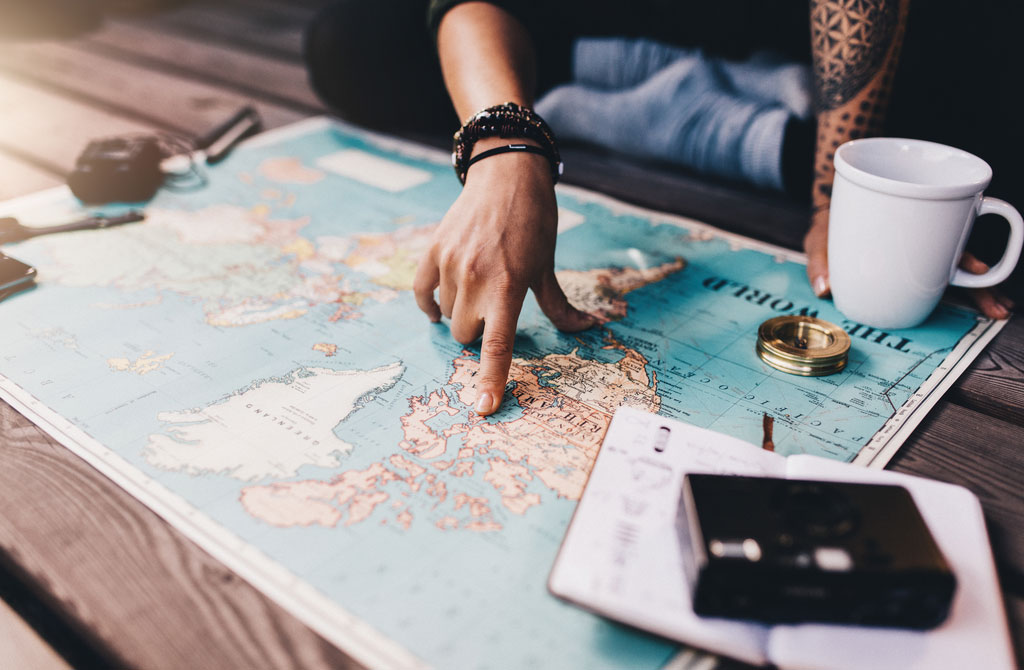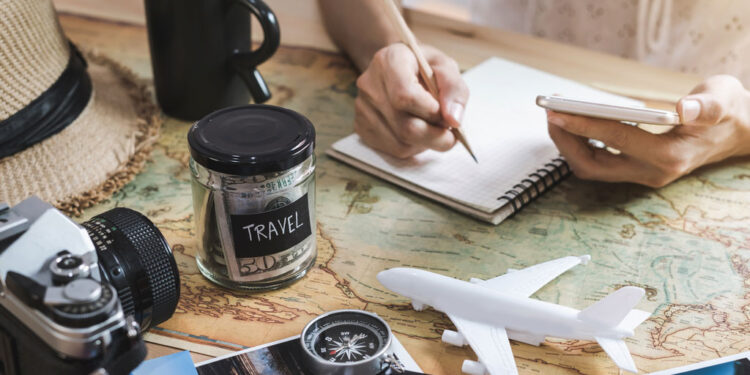As something of a world traveler myself, I’ve spent quite a bit of my life on the road. There are a lot of different types of joy you can experience in life, but in my experience none quite compare to the joy of experiencing the culture, customs and attractions of an unfamiliar country. If you haven’t felt this type of joy yet, let me tell you: you’re missing out.
For many, traveling is something that gets pushed to the bottom of the priority list due to a number of factors. For some, it’s the time constraints, for others the effort. Some can’t cope with the stress-inducing elements of train stations and airports, while yet others take issue with less temperate environments in foreign countries.
If there’s one thing that stops more people from traveling than anything else, it’s probably the cost. Between the cost of tickets, the expense of accommodations and the other miscellaneous expenditures, traveling is increasingly a pastime that is marked by prohibitive costs. To many, these costs make the thought of traveling a distant dream rather than a feasible possibility.
Don’t give up on those dreams just yet though; I’m here to tell you that traveling can be a lot cheaper than you might think! If you’re willing to make some sacrifices in the areas of comfort and convenience, traveling is something that just about anyone can enjoy, regardless how miniscule their salary is. Believe me, I know a thing or two about salary limitations!
Article Summary:
Getting in the right headspace

Now, before you can travel on a budget, you’ll need to come to terms with a few very important realities. Traveling on a budget is an experience that doesn’t share much in common with the vapid stereotype all too often associated with globetrotting, and you’re very likely to find yourself pushed well outside your comfort zone.
That’s the kicker; learning how to travel the world on a budget won’t just provide you with a few pleasant moments and some quick fun. Instead, it will leave you with a lasting sense of self reliance, the presence of mind to think on your feet, and an unshakeable ability to take on both good and bad experiences with an equally optimistic attitude.
In short, what I’m trying to say is this. If you’re looking for cushy hotel rooms, guided tours and meals at Michelin star restaurants, don’t bother reading any further. Take a trip to Vegas, get it out of your system and move on. If, however, you’re interested in learning how to travel the world on a budget and use your experiences to enrich your life and character, then this is the article for you. Let’s get started!
Tips and tricks from a seasoned vet

As I mentioned before, I’ve got quite a bit of experience traveling the world on a budget. I’ve traversed entire continents from one side to the other with less money than most Americans spend on coffee in a month. I’ve been stranded in foreign cities without a dime or a plan as to how I’d get home. It seemed dire at times, but it always panned out alright in the end.
In the following sections, I’ll share some of the tips and tricks I’ve learned while taking in the sights and sounds of daily life in Europe, North Africa and Central America. This is hardly a complete guide, but hopefully these pointers will prove useful at one time or another, and maybe even help you out of a tight spot once or twice. That’s all I’ve got to say about that; let’s begin.
Lower your lodging expectations
While there are aspects of life on the road that can’t be economized too heavily (looking at you, air travel), there are a few big expenses that can be pared down quite a bit if you’re savvy. One of these expenses is lodging! You won’t be staying in mansions or palaces, but I can guarantee you won’t be spending a lot of money either.
When you’re traveling the world on a budget, hostels are your best friend. They’re not the most pleasant places to stay, I know; crowded, noisy and less-than-immaculate are all descriptions that unfortunately fit most of these budget stays. Still, a thorough online search will usually help you figure out which hostels in the area are the least dingy, and once you get used to the cohabitation they can be quite fun.
Another great option is couch surfing. This free-to-use service allows users to host guests at no costs, as well as stay at the homes and apartments of other users. While the concept may seem a bit dubious at first, the service has a number of very well designed safety features that make it a lot more reliable than you might expect. I’ve actually met some of my dearest friends using this service!
Make or buy inexpensive meals

Another significant expense that most travelers face is food. We all have to eat, but when you’re abroad it’s a lot harder to prepare home cooked meals, which makes the temptation to eat out all the more tempting. This is fine every now and again if you manage your budget well, but it can easily get out of hand and cost you way more than you wanted to spend.
If you’re going to save money on food, the best way to do that is by eating simple, healthy meals purchased mainly from grocery stores and local markets. Sandwiches are a good place to start, as all the ingredients can be purchased for a very reasonable sum at just about any store, regardless what country you’re in. From there you can try salads, liver pate, hummus and other local specialties, as long as it’s cheap and relatively healthy.
In countries where street vendors and open air markets are common, you’ll usually have more options as far as inexpensive but tasty meals are concerned. Well established restaurants are typically expensive regardless where you travel, but street food is a lot cheaper as a general rule. Additionally, these foods are almost always closer to what the locals eat, so you’ll get a much more solid feel for the culture and customs this way.
Learn (a little of) the language

Unless you’re familiar with the language spoken by the residents of the country you’re planning to visit, you’re probably not going to be able to achieve fluency by the time you arrive. That shouldn’t stop you from trying! Even if you only manage to learn a few words and phrases, putting in some effort to learn the language is well worth the trouble.
For starters, showing a willingness to learn the language will substantially change the way you’re perceived. If you speak loud, obnoxious American English everywhere you go, you’ll be perceived as a loud, obnoxious American. You know what happens to obnoxious Americans? They get overcharged, scammed and fooled. Everywhere, every time.
Throw a local few words and phrases in there, however, and things change. Now you’re seen as someone who is at least trying (however unsuccessfully that might be) to show respect to the culture in which you are a guest. This combined with the fact that your limited vocabulary will lead you to speak less in general means reasonable prices and fair treatment.
Do. Not. Rent. A. Car.

One thing that perplexes me to no end is how insistent Americans are on driving cars when abroad. Back home, I understand it; our public transportation infrastructure in the States ranges in quality from barely functional to simply nonexistent, making cars the only option. However, most developed countries outside the U.S. have efficient, affordable and well planned public transportation networks. If you want to save money, use these instead of renting a car!
No matter what your plans are for your trip, let me assure you of this: if you put in a little effort, there’s virtually no reason to rent a car instead of just taking the bus, tram, subway or train. From Europe to South America to Asia, these modes of transportation aren’t just as good as driving; they’re better.
That’s right; in most cases, renting a car will cost you more than just the price of gas, insurance and the rental itself (costs that are nothing to scoff at, I might add). It will cost you time too, while you sit in traffic and circle the block looking for parking. All in all, renting a car just isn’t worth the time, money and effort required, so just don’t!
Conclusion
While these tricks have done me well time and time again in my journeys, they’re only the beginning. As you learn to travel the world on a budget, you’ll devise your own methods and techniques. Over time you’ll have your own traveler’s playbook, where you can store your most treasured nuggets of wisdom to pass on to friends and family. I wish you the best of luck, from one world explorer to another!











